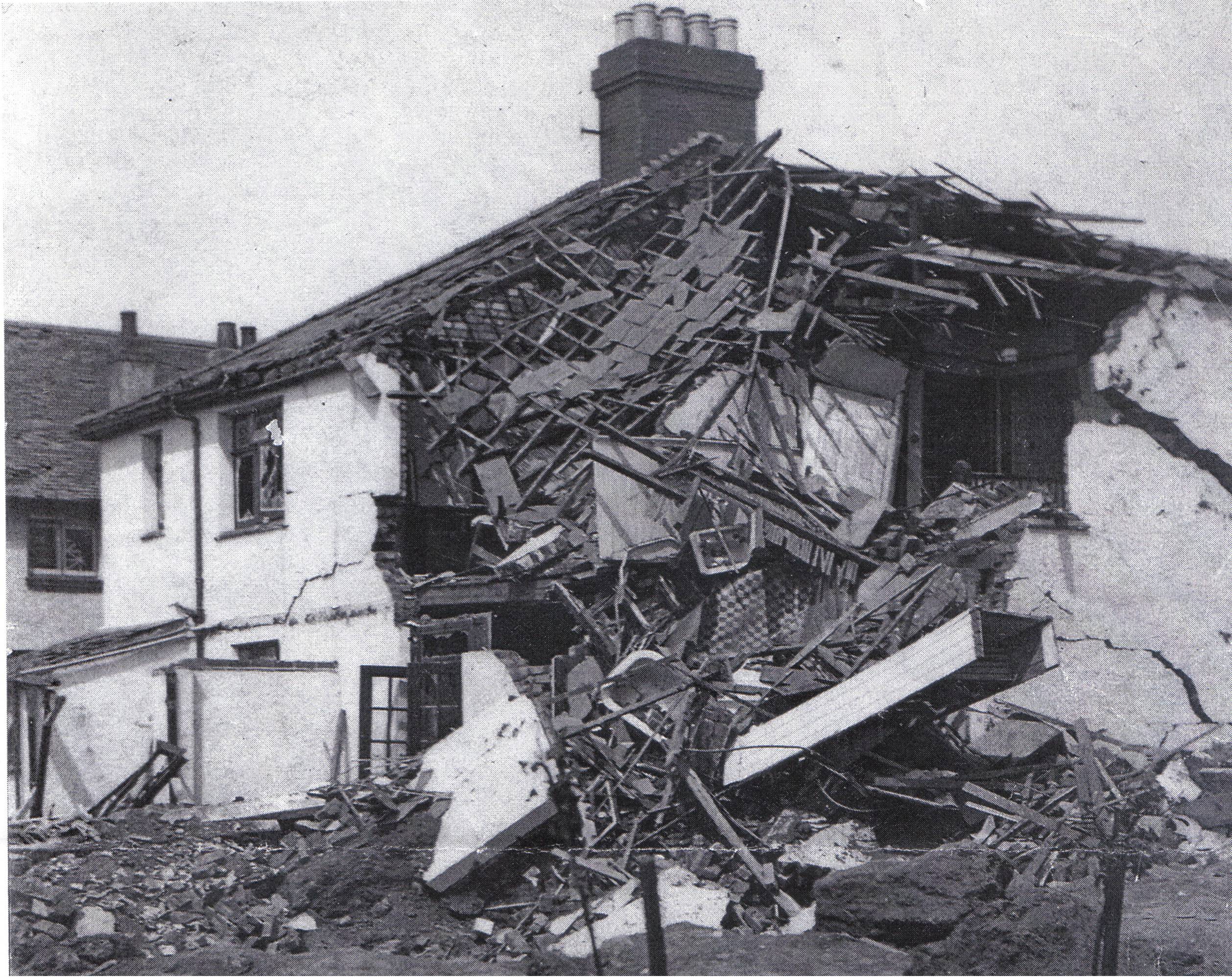When War Hit Home – World War 2 Cardiff
My parents bought 131 Pantbach Road in 1928, my father having borrowed money from his father-in-law and the builder to secure a deposit. The house cost £250.
In 129 lived the Sampsons. Mr Sampson was an austere dour man who worked in the Pump House in the Docks. He rode a bicycle to and from work. Mrs Sampson was a chatty woman, who was small of nature and always busy. They had two boys – Donald who had red hair and Stanley, who was one of nature’s bachelors and never married. Donald was always in trouble, always got caught, but went on to become one of the leading scientists in the development of radar in Woomara, Australia in the post-war years.
Next door to us, in the other half of our semi, lived the Tolmans and Mrs Tolman’s sister – ‘Our Ede’.
Nearby, in Bella Vista, Dr Danny Thomas set up ‘his plate’ and became the family physician and a very good one at that. Dr Thomas moved to Birchgrove in the 1930s, and in essence, was the founder of the Birchgrove Practice.
There have been many changes to Pantbach Road – from a country road to a main residential thoroughfare. The Monico Cinema was built in the 1930s, and St Thomas’s Church, a corrugated ‘shed’ used to call the faithful to prayer with its tin bell.
Opposite where we lived was Homelands Road, giving us a clear sight of the Phoenix Brick Works, whose 8 o’clock hooter, calling the workers in, was also a clear signal for the many children of the village to dash to Rhiwbina Elementary.
But 1939 came and war was declared. At the age of ten, the idea seemed a fun one, but the full horror of war literally hit home on the night of 17/18 May 1943.
My mother had insisted that my brother and I head downstairs when we heard the siren. She reassured us as we sat there chatting under the stairs. Outside in the black skies, the ack-ack guns were throwing up a great barrage of fire, while flares hung hauntingly in the sky. There had been many inactive alerts in previous months. Ominously so. Our dog was shivering this time.
We didn’t hear it coming but we felt it when it arrived. The house shook violently; the fridge stopped; pots fell from shelves, bricks and masonry fell down the stairs. There were a lot of noises but no big bang as such. Strangely, the dog had stopped shivering.
Several minutes passed before we realised that we had been hit. My father, who had been fire-watching in the street (and who had his own near miss) was shouting at us, forcing his way into the house.
Next door at 133, the external wall had collapsed inwards on Mrs Tolman, ‘Our Ede’ and their lodger – who did not survive.
Mrs Tolman and Ede had to be dug from the rubble and spent many months in hospital afterwards.
Nos.131, 133, 135 and 137 were totally wrecked. Our upstairs bedrooms were open to the skies and full of rubble – we would not have survived if we had stayed in bed. There was a car on its roof at the bottom of the garden and our car had been crushed in the garage by the weight of the sub-soil.
Father later told his version of events as he and Willy Herbert, the local butcher, stood outside a surface shelter near the corner of Caegwyn Road. Father had spotted a parachute mine descending slowly behind Homelands Road. Grabbing Mr Herbert, they both dived into the shelter. At that moment, three bombs dropped onto Pantbach Road.
As the dust settled, father and Willy Herbert emerged from the shelter. Willy’s shop awning was flapping in the breeze, to which he remarked “They got my blind!” before realising the full impact of the bomb and exclaiming “They got my bloody shop!”
Concern for the family had galvanised my father into a headlong dash to our house, smashing his way in to make sure we were safe.
In the morning, as dawn broke over the huge craters and the devastated houses, people wandered aimlessly, not sure where to start the clean-up. We were still in pyjamas. My mother had lost her valuable rings in the rubble of what was once a front bedroom. The bed was hanging through the lounge ceiling. Our friend Bill and his neighbour grabbed shovels and a riddle and sieved every last piece of rubble until they found the rings in the very last few pounds of dust.
Father handed around a bottle of whisky he had received as a Christmas gift. It served to slake their thirst that day.
The three bombs that night killed three people and severely injured two. The six houses in Pantbach Road were totally demolished as they were deemed unsafe. They were rebuilt after the war and to this day, can be seen to be totally different from other houses in the street.
Following the raid, we had numerous offers of accommodation and help from people that we hardly knew, and we ended up sharing a house opposite, where Mr and Mrs Llewellyn lived alone.
I have vivid recollections of that night that don’t diminish in spite of my years. I even remember the two candles that still burned brightly after the raid, even though the room was wrecked.
Some years later in business, I met a George Cooper, ex-RAF who had directed the ack-ack barrage protecting essential targets in the Cardiff and Barry area. He remembered the last active raid on Cardiff.
So do I.
Bob Jones, Rhiwbina

